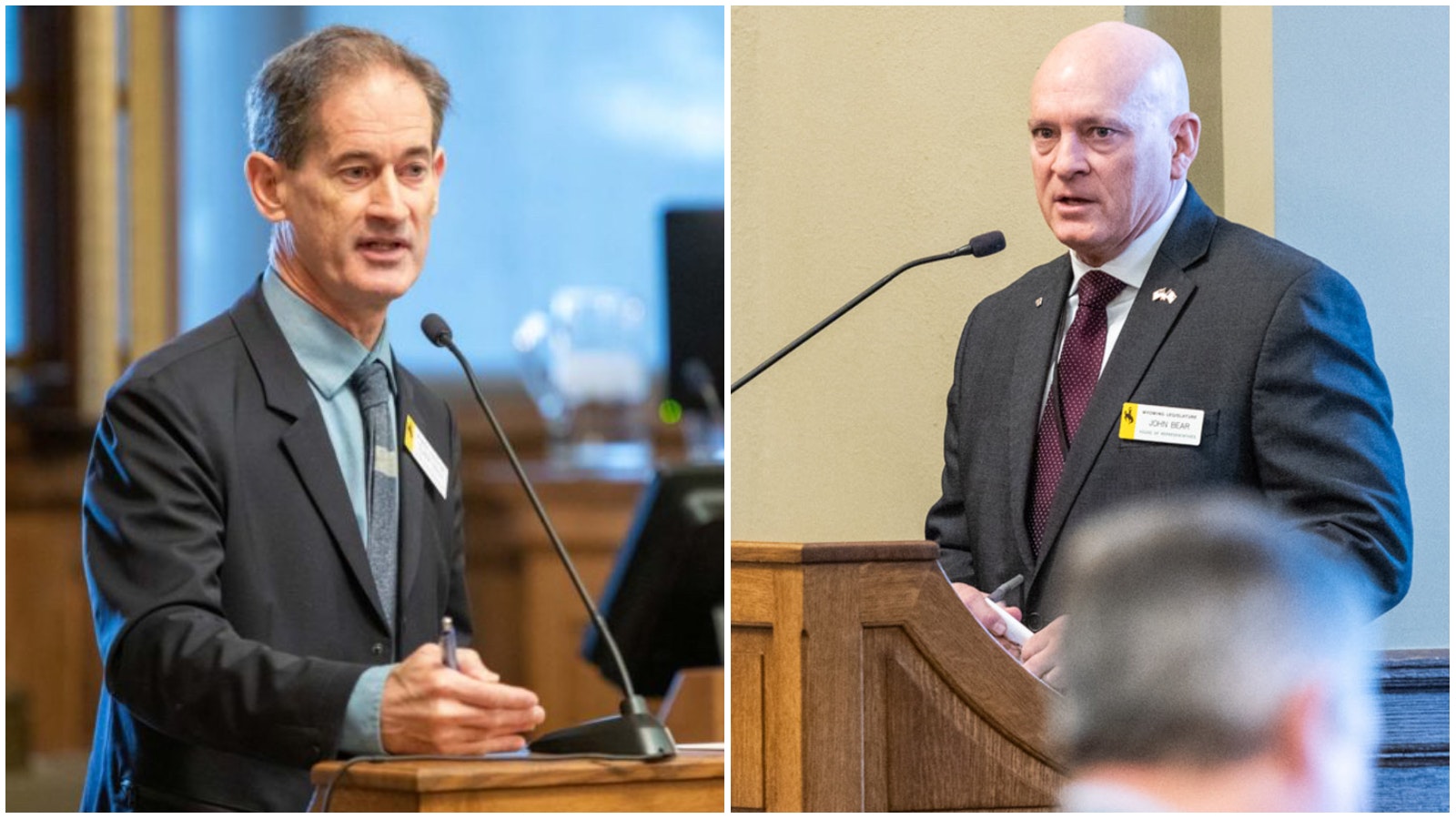The last of a pair of bills the Wyoming Legislature was considering to change the state Constitution and reclassify residential property so it is not lumped in with industrial and agriculture properties failed Wednesday.
Lawmakers became interested in the idea after realizing residential property is categorized as “other,” which makes it difficult to target any tax relief to residential homeowners. The Wyoming Constitution requires all properties in the “other” category be treated the same, which also means tax relief for residential properties would have to apply to industrial and ag.
Now that both bills that aimed to give residential property a category of its own have failed, that means any specifically targeted homeowner relief is likely dead as well.
House Joint Resolution 2 came closest to making the two-thirds majority threshold needed to pass Wednesday, while Senate Joint Resolution 12 died in committee.
Members of the Wyoming Freedom Caucus were implicated in the bill’s demise, said Rep. Clark Stith, R-Rock Springs.
“Surprisingly, House members associated with the so-called Freedom Caucus voted as a bloc against,” the speaker pro tempore said.
It Had Momentum
House Joint Resolution 2 had the backing of the Wyoming Realtors Association, which saw it as a piece in solving the affordable housing puzzle for Wyoming’s labor force.
Many communities in the Cowboy State are facing an affordable housing crunch at the same time there is record inflation for many essential staples, like eggs and bread.
The association’s support helped give HJ 2 momentum, getting it onto the House floor Wednesday, which was the cut-off for bills to pass their houses of origin.
All of the floor time spent debating House Joint Resolution 2 on Wednesday revolved around an amendment brought by Rep. Tony Locke, R-Casper, that would give lawmakers the option to consider caps on assessed valuation for residential properties — the same type of language that helped sink Senate Joint Resolution 12 in committee, the other property tax relief bill.
Creating An Option
Locke, who has been associated with the far-right Freedom Caucus in a variety of reports, said his “simple” amendment would just provide an option for lawmakers to debate a cap in the future.
“My objective here is, again, to just capture the work that was done in the interim,” he said. “That was in one of the original bills.”
His amendment, unlike SJ 12, did not seek to add any particular cap nor suggest a number for a cap.
“I know that many of have some history on this, and I know several times this cap issue has come up,” he said. “There’s you been discussions that maybe it was not constitutional. So that was my objective here, to again, just put the option in there.”
While caps aren’t always the right solution, sometimes they are “very understandable,” Locke said.
“It’s an understandable option for the people of Wyoming, if we decided to use it,” he said. “It’s that type of an option or type of a tool in the toolbox that people will recognize.”
Caps Often Benefit The Wealthy
Rep. Steve Harshman, R-Casper, said the caps issue on HJ 2 came about through a last-minute procedural motion.
Wyoming, he acknowledged, already has some caps in place on mill levies, but added that there’s a reason the Cowboy State has avoided them.
“What’s happened in the states that have done caps, and some of them are wealthy states, but really, who’s benefitted? The rich are going to benefit the most,” he said. “They’re going to benefit the most. You look at property tax as a percent of personal income. And (in) states that have caps, it’s dropped dramatically.”
That could spell trouble for Wyoming’s non-mineral counties, Harshman said, as well as lead to increased fees or taxes in other areas.
“I mean, we all want an ambulance when we dial 911,” he said. “We all want firefighters to show up 911. We all want our county parks and county roads and county weed and pest and county building. We want an inspector out there when we add on to our place.
“And we want city service and protection, and we want our local schools.”
Adding language about caps adds too much uncertainty, Harshman said, adding that “separating residential is probably a hard enough lift.”
Too Much Lift
Other lawmakers were concerned the amendment is a poison bill that would put the resolution in danger,
Rep. Liz Storer, R-Jackson, said the section lawmakers were looking at includes a directive that all taxation be equal and uniform within each class of property.
“This amendment to the resolution will completely change that concept and be in conflict with the current Constitution,” she said.
Rep. Landon Brown, R-Cheyenne, echoed that concern.
“We’re actually completely contradicting the current state Constitution that was ratified back in 1988,” he said. “The Constitution is a fickle little thing. It fits us when we needed it.
“And sometimes we don’t like it, but it actually says right here, the vote of the people back, you know, a year after I was born, that this is how it’s going to be assessed. And now we want to go back and say, ‘Well, that residential property, we want to treat that one differently.”
Rep. David Zwonitzer, R-Cheyenne, felt the amendment was too prescriptive and that future lawmakers may want to take a completely different approach.
“Some, I know, in some parts are asking for this type of a tool,” he said. “I just don’t think this is the only tool, and that’s a conversation for a later day.”
Let The Voters Decide
Several lawmakers pointed out that House Joint Resolution 2 would go to voters first, and said that the amendment would help clarify legislative intent.
“I voted for every opportunity we had to give money back to taxpayers,” said Rep. John Bear, R-Gillette, and chairman of the Wyoming Freedom Caucus. “And they were good things, but they were very small things.
“Here is a chance for us to do something very significant, and it’s going to take time. This is going to have to go to the voters. They’re going to have to make a decision if they want this in the Constitution or not.”
If voters do agree, then the matter still has to come back to the Legislature for more discussion on how best to apply the new flexibility in categorizing property tax, Bear said.
“That’s a lot of time before they’re going to feel the relief of this, but it would be significant relief,” he said. “It would give this body the ability to do something very meaningful, especially at a time when we’re dealing with surpluses.
“And our constituents, I have a lot of constituents who are not dealing with surpluses in their own bank accounts.”
Giving voters a chance to speak is what Democracy looks like, said Rep. Scott Heiner, R-Green River. Heiner, too, has been listed among Freedom Caucus members in a variety of media reports and is listed among early members on a national Web Page for the political group.
“It’ll go on the ballot and then 580,000 people, or however many thinks it’s important enough to vote on it, will have their say,” he said. “They will decide if they want a fourth class. They will decide if they want caps on residential property increases. They get to decide, and that is the ultimate way democracy works.”
The amendment adding caps to House Joint Resolution 2 failed on a narrow vote, with 29 yes votes and 33 noes.
There was no further debate as the bill headed into its final vote, where it collected 37 ayes and 25 nos — not enough to pass the two-thirds majority required.
Where The Bill Stands
House Joint Resolution 2 has died even though it gathered a majority 37 votes. That was five shy of the 42 it needed for a two-thirds majority in the House. An amendment that would have added an option for the Legislature to consider a cap on future property valuation increases was introduced but failed.





